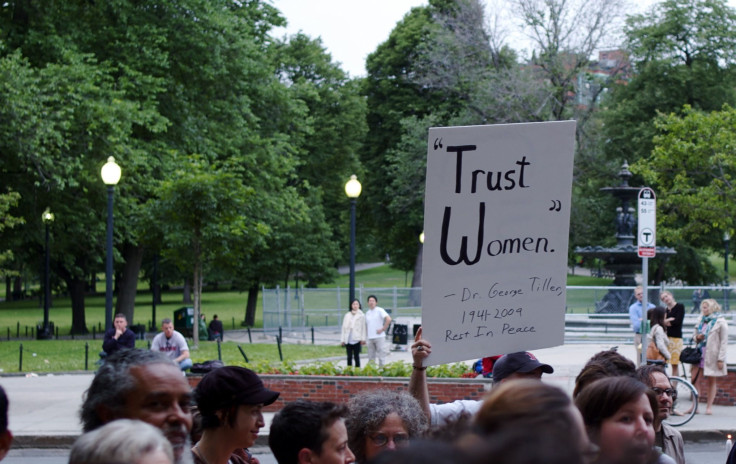'After Tiller' Movie Investigates Late-Term Abortions And The Few Doctors Willing To Perform Them

As the debate over access to abortion rages, the question of late-term abortions seems to have been settled. With only 10 percent of Americans supporting the legality of late-term abortions and only four doctors willing to perform them remaining in the United States, the controversial procedure makes up only a fraction of a percentage of all abortions. But After Tiller, a new film profiling the remaining doctors and the patients they serve, is bringing the debate back to public attention.
The film’s title is an homage to Dr. George Tiller, a doctor who performed late-term abortions at a women’s clinic in Wichita, Kan., and was murdered in 2009. He was attending church when he was shot. Since the passage of Roe v. Wade, the seminal 1973 Supreme Court decision which protects women’s rights to abortion, eight abortion clinic workers have been murdered.
Filmmakers Martha Shane and Lana Wilson, armed with cameras, marched past anti-abortion activists protesting outside of abortion clinics to interview the doctors who deal with the death threats on a daily basis. Dr. LeRoy Carhart, one of the four profiled doctors, moved from Nebraska to Maryland when the former state's laws placed limits on his work. His farm was burned down in 1991.
“We wanted to know what kind of person would want to do this job, where they’re getting shot at and harassed all the time,” Wilson said an interview with the Wall Street Journal. “What’s that like as a human being?”
The film examines the doctors’ and the patients’ stories. Patients sought late-term abortions for a variety of reasons, including fetal anomalies discovered late in the pregnancy and circumstances that threatened the woman's life. Some women were victims of rape or incest, while some were teenagers debating between an abortion and adoption.
According to the Guttmacher Institute, late-term abortions make up less than one percent of all abortions. A 2011, Gallup poll found that only one in 10 Americans support legality of the procedure. With 45 percent of Americans identifying themselves as "pro-choice," the numbers imply even pro-choicers have doubts about late third-trimester abortions.
Roe v. Wade protects a woman’s right to an abortion up to the point of fetal viability, the temporal point at which a fetus may live outside the mother, generally believed to be at 24 weeks. But that doesn’t stop state legislatures and even the U.S. Congress from attempting to enact earlier limits.
Late-term abortions are another story. Currently, 41 states prohibit abortions after a certain point, most of which prohibit abortions after fetal viability. In order to be constitutional, these laws must allow for an exception in the case an abortion is “necessary to preserve the life or health” of the woman and also to give physicians the final say in whether a fetal is viable.
"This film makes people realize just how complicated this issue is, it is not black-and-white," Wilson told Fox News. "Theres a lot of gray."



























